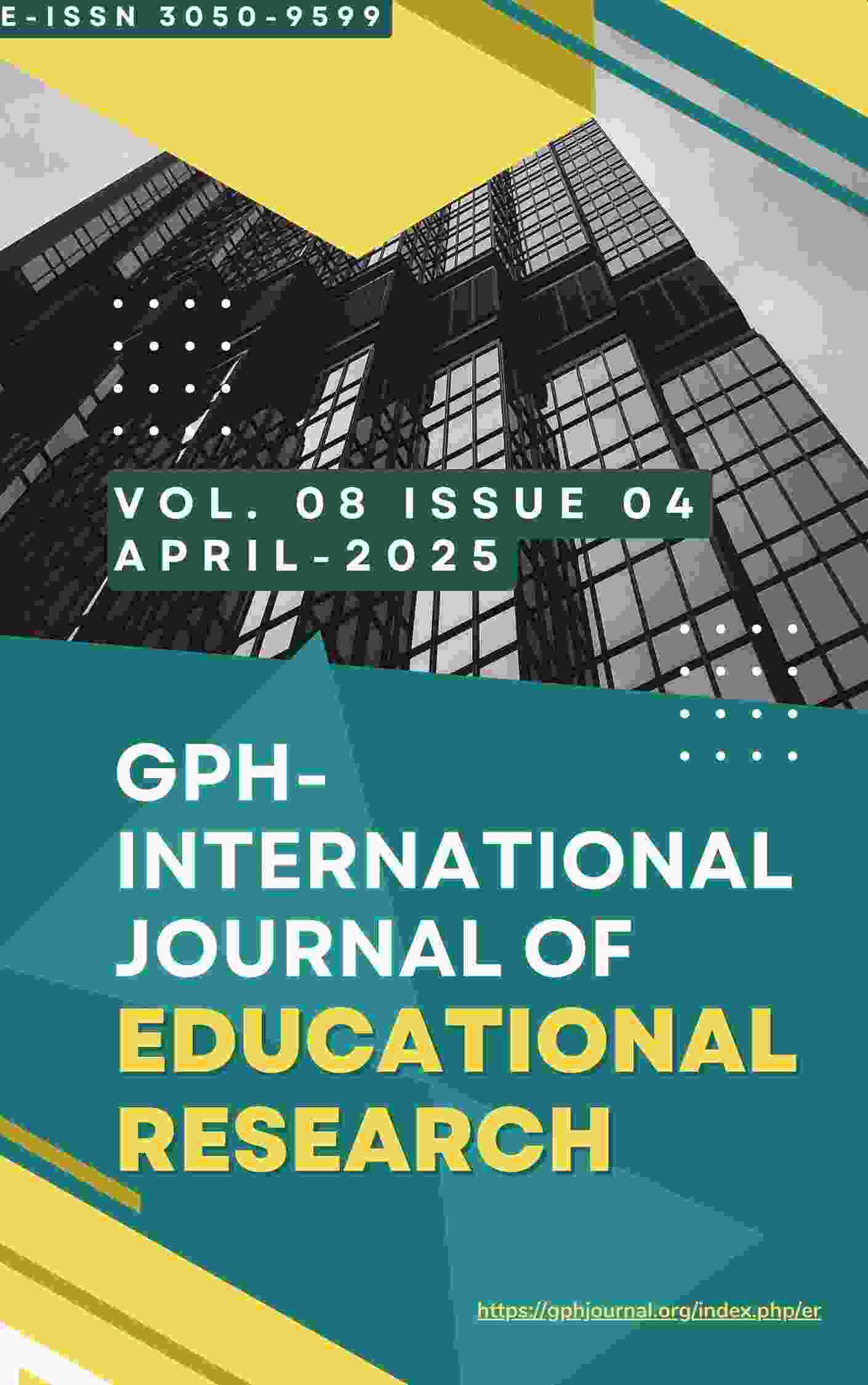ASSESSMENT OF PRIMARY SCHOOL TEACHERS’ LEVEL OF KNOWLEDGE OF THE ROLE OF NUTRITION IN PROMOTING VITALITY
Abstract
The study assessed primary school teachers’ level of knowledge of the role of nutrition in promoting vitality in children. The study investigated primary school teachers’ knowledge of the role of nutrition in enhancing children’s vitality. A descriptive survey design was employed, guided by three research questions and one hypothesis. The study focused on all teachers in public and private primary schools within the Asaba metropolis. A total of 300 teachers 150 each from 10 public and 10 private schools were selected using a multistage sampling technique. Schools were purposively chosen, participants were stratified by school type, and respondents were selected through convenience sampling. Data were collected using a researcher-developed, 32-item questionnaire titled Teachers’ Level of Knowledge on Nutrition and Vitality among Pupils Questionnaire (TLKNVPQ). The instrument had two sections: Section A gathered demographic information, while Section B focused on teachers’ knowledge and practices regarding nutrition. Responses were rated on a four-point Likert scale, with formats including Strongly Agree to Strongly Disagree and Very High Extent to Very Low Extent. The questionnaire was validated by two experts and tested for reliability using the split-half method, yielding an internal consistency coefficient of 0.83. With assistance from two trained research aides, 300 copies of the questionnaire were distributed, and 283 (94%) were returned and analyzed. Descriptive statistics, including mean scores and standard deviation, were used for analysis. Findings revealed among others that while teachers in both public and private schools understood the importance of balanced nutrition in promoting children’s physical energy and vitality, this knowledge was not consistently translated into classroom practices. Teachers rarely integrated discussions on healthy eating into lessons, seldom organized nutrition-focused activities, and infrequently invited health professionals to speak on healthy lifestyles or active meal programs. Based on the findings, it was recommended among others that teacher education programs, both pre-service and in-service, should include mandatory coursework on nutrition and child health. This would help ensure that educators are well-equipped to support pupils’ physical growth, cognitive development, vitality, and emotional well-being through informed nutritional practices.
Downloads
References
Adewumi, T. M., &Olayemi, A. O. (2017). Teachers' awareness of school health programme in Ekiti State, Nigeria. International Journal of Education and Research, 5(5), 13-24.
Akinyemi, F. O., &Ikuomola, A. D. (2020). Knowledge of Nutrition and its Implications for Teachers in Lagos Public Schools. Nigerian Journal of Educational Foundations, 23(1), 78–88.
Idowu, A., Ojo, M., &Ayodeji, O. (2021). Double Burden of Malnutrition in Nigerian School Children: Implications for Policy and Practice. African Journal of Food, Agriculture, Nutrition and Development, 21(1), 17111–17127.
Mozaffarian, D., Rosenberg, I., &Uauy, R. (2020). Food policy: A crucial driver of health, economic, and environmental outcomes. The Lancet, 395(10217), 1062-1075.
Nwachukwu, N. C., &Eze, S. O. (2023). A comparative study of nutrition knowledge among primary school teachers in urban and rural settings in Southeastern Nigeria. Journal of Public Health and Nutrition, 6(2), 34–42.
Obasohan, P. E., &Okojie, O. H. (2018). Teachers' knowledge, attitudes and practices regarding nutrition education in Nigerian primary schools. Nigerian Health Journal, 18(3), 94–101.
Olumakaiye, M. F. (2016). Food and nutrition security: Challenges of school-age children and adolescents in Nigeria. African Journal of Food, Agriculture, Nutrition and Development, 16(1), 10714–10728.
Oluwafemi, A. A., &Oladele, T. M. (2022). Institutional Barriers to School-based Nutrition Interventions in Nigeria. International Journal of Nutrition and Health Sciences, 9(4), 92–99.
Onabanjo, O. O., &Oguntona, C. R. B. (2019). Promoting healthy nutrition among school-age children in Nigeria: The role of the teacher. Nutrition & Health, 25(3), 197–204.
Pham-Huy, L. A., He, H., & Pham-Huy, C. (2008). Free radicals, antioxidants in disease and health. International Journal of Biomedical Science, 4(2), 89-96.
Slavin, J. L. (2013). Carbohydrates, dietary fiber, and health. Nutrition Today, 48(2), 52-64.
UNICEF. (2021). Improving School Nutrition: A Multi-Sectoral Approach to Health and Education. New York: UNICEF Publications.
WHO. (2020). Nutrition for School-aged Children. Geneva: World Health Organization.
Yusuf, A. M., &Adamu, R. (2019). Nutrition Education in Nigerian Schools: Teachers’ Awareness and Perceptions. Journal of Education and Practice, 10(30), 92–99.
Author(s) and co-author(s) jointly and severally represent and warrant that the Article is original with the author(s) and does not infringe any copyright or violate any other right of any third parties, and that the Article has not been published elsewhere. Author(s) agree to the terms that the Global Publication House will have the full right to remove the published article on any misconduct found in the published article.























